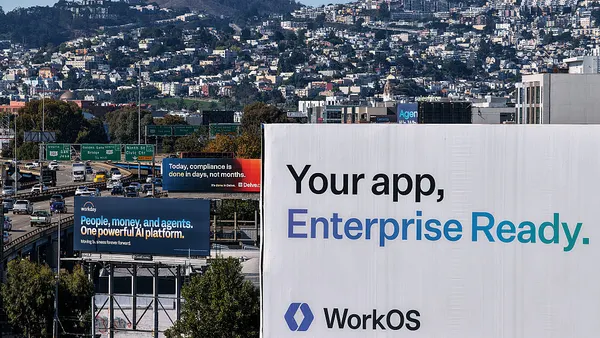Nearly 4 in 10 new hires — including 1 in 2 Generation Z workers — reported second thoughts about taking a job during the onboarding process, according to a July 15 report from TalentLMS and BambooHR.
More than half of employees said their onboarding overly focused on administrative tasks, often overshadowing job readiness. In addition, 23% said they struggled with skill-building during the onboarding process because there weren’t adequate personalized learning options.
“When done well, onboarding isn’t simply a program. It’s the foundation for workplace success,” Roza Tapini, vice president of people and culture at Epignosis, the parent company of TalentLMS, said in a news release.
“Employees who feel supported from day one emerge more integrated, capable and engaged, underscoring the value of modern onboarding strategies that balance connection and skill-building,” Tapini said.
In a survey of more than 1,100 U.S. employees hired in the last year, 73% said they were at least somewhat satisfied with their onboarding experience. However, opinions varied on how to improve.
For instance, 47% of Gen Z employees said the onboarding process overwhelmed them with too much information. In addition, some workers said they missed the human touch, including 41% of Gen Z, 33% of millennials, 29% of Generation X employees and 18% of baby boomers.
Gen Z workers were more likely to say they used artificial intelligence tools to answer onboarding questions more than asking their manager. However, 60% of all employees said they didn’t receive any AI training during onboarding, which could provide an opportunity for HR teams to incorporate tech-driven learning options, the report found.
Overall, hybrid onboarding was highlighted as the most effective option, with 75% of workers reporting satisfaction with the process. Unhappiness with support after onboarding was also lower among hybrid employees, while remote employees reported the highest dissatisfaction with ongoing training.
Notably, 65% of employees said they view onboarding as the beginning of a continuous learning journey, which HR leaders can leverage for long-term engagement, the report found.
During onboarding, new hire cohorts are one way to boost retention and help employees feel connected with the company, especially when managed properly, experts told HR Dive. However, feelings of discontent can spread, so HR pros can steer the tone by selecting group leaders and supporting cohort members as they move throughout the company.
In particular, cohorts can improve retention among Gen Z workers, according to a study published in the Journal of General Management. Leaders can reduce turnover risks by listening to employee location preferences, helping new hires feel like they’re a meaningful part of the organization and creating strong cohort dynamics, the researchers found.














